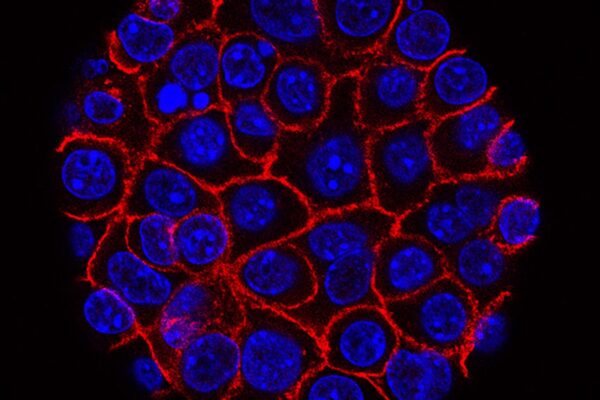
Pancreatic cancer continues to be one of the most difficult-to-treat cancers. An Ipsen drug is now approved as a first-line therapy, moving it up in the treatment hierarchy for this type of cancer.
The drug, Onivyde, was initially approved as a second-line therapy for pancreatic cancer in adults whose disease has advanced following treatment with standard chemotherapies. In expanding to first-line treatment of metastatic disease, the drug must continue to be used in combination with chemotherapy, according to the FDA announcement Tuesday. The approval covers use of the infused therapy for the treatment of pancreatic adenocarcinoma, or PDAC, the most common type of pancreatic cancer.

With the Rise of AI, What IP Disputes in Healthcare Are Likely to Emerge?
Munck Wilson Mandala Partner Greg Howison shared his perspective on some of the legal ramifications around AI, IP, connected devices and the data they generate, in response to emailed questions.
The cancer-killing agent in Onivyde is a widely used chemotherapy called irinotecan. This drug works by blocking topoisomerase I, an enzyme key to cancer cell replication. The innovation of Onivyde is the enclosure of irinotecan in tiny fat particles called liposomes. These particles are intended to reduce the leakage of the drug payload before the therapy reaches the tumor. Accumulating at the tumor site, the liposomes release the drug slowly over time, according to Paris-based Ipsen.
The liposome technology used in Onivyde is from Cambridge, Massachusetts-based Merrimack Pharmaceuticals, which initially developed the drug and steered it to a 2015 FDA approval. In 2017, Ipsen paid $575 million up front to acquire Onivyde and another Merrimack cancer drug. Ipsen ran the Phase 3 studies testing Onivyde as a first-line pancreatic cancer therapy.
The pivotal clinical trial enrolled 770 patients with metastatic pancreatic cancer. These patients had not previously received chemotherapy to treat their metastasized disease. Participants in the study drug arm received Onivyde and three standard of care drugs, including two chemotherapies, a combination typically shortened to NALIRIFOX. Onivyde is administered as a 90-minute intravenous infusion. In the study, the Ipsen drug was administered first, followed by the other rest of the NALIRIFOX drugs in succession. The control arm was treated with two standard-of-care chemotherapies, gemcitabine and nab-paclitaxel.
The clinical trial’s main efficacy goal was measuring overall survival. Results showed the study drug arm achieved median overall survival of 11.1 months compared with a median 9.2 months in the chemotherapy arm, which was enough to be statistically significant. Median progression-free survival was 7.4 months for NALIRIFOX and 5.6 months in the chemotherapy arm. The most common adverse reactions reported in the study included diarrhea, fatigue, nausea, vomiting, and abdominal pain. The drug’s label continues to carry a black box warning for risks such as severe diarrhea and severe neutropenia, which is a low number of neutrophils, a type of white blood cell.
“With today’s approval, this Onivyde (NALIRIFOX) regimen can now offer a potential new standard-of-care treatment option with proven survival benefits for people living with metastatic pancreatic adenocarcinoma in the U.S.,” Christelle Huguet, executive vice president and head of research and development, Ipsen, said in a prepared statement.
Ipsen holds U.S. rights to Onivyde and reported €162.4 million in sales for the drug in 2022, a 27.4% increase over sales in the prior year. Servier, which holds the drug’s rights outside of the U.S. and Taiwan, launched the product in 2020. The company reported €145 million in Onivyde sales for the financial year ended Sept. 30, 2022, up 13.7% compared to the prior financial year.
Ipsen’s acquisition of Onivyde put Merrimack in line for up to $450 million in milestone payments. Approval of the drug as a first-line pancreatic cancer treatment triggers a $225 million milestone payment. The deal also calls for a $150 million milestone payment if Onivyde is approved in small cell lung cancer and $75 million for an additional approval in another indication other than lung or pancreatic cancers.
Merrimack no longer has any R&D, or anything else for that matter. A 2019 restructuring cut all of its employees, including management. The company exists solely to “preserve our ability to capture the potential milestone payments resulting from the Ipsen sale,” it said in its 2022 annual report. Following Onivyde’s approval as a first-line treatment for pancreatic cancer, Merrimack announced that its board of directors has concluded it is unlikely any additional milestone payments will become payable.
Merrimack is now planning a May meeting during which stockholders will vote to approve a plan to dissolve the company. Merrimack shareholders won’t be left emptyhanded. The plan of dissolution includes a liquidating dividend expected to pay out between $14.65 and $15.35 per share, which is contingent on the receipt of the Ipsen milestone payment. The plan also includes the establishment of a liquidating trust to disburse any future milestone payments that Merrimack might receive.
Public domain image by the National Cancer Institute














